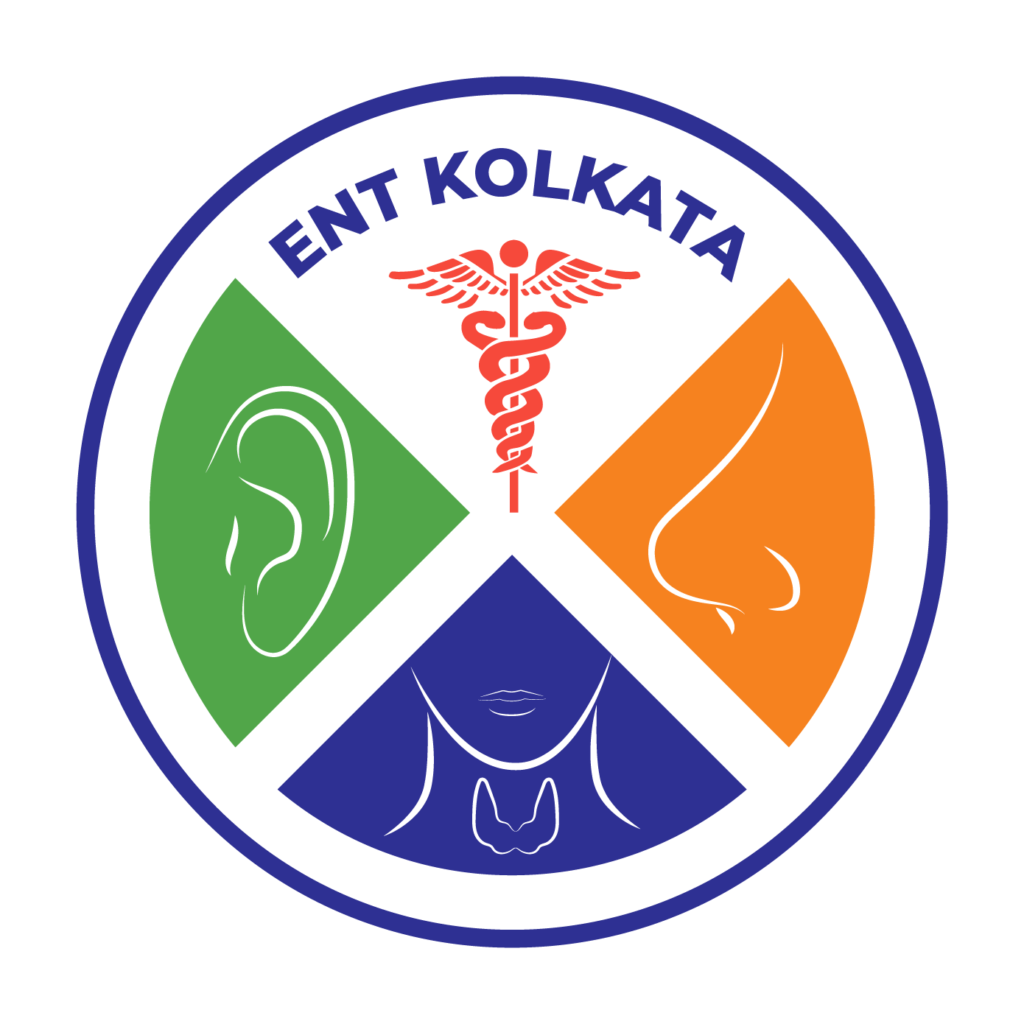Headache disorders represent some of the most common health complaints, with migraines and tension-type headaches being particularly prevalent. While these conditions are typically managed by neurologists or general practitioners, ear, nose, and throat structures can play a significant role in both triggering and mimicking these headache types. Understanding the differences between migraines and tension headaches, particularly from an ENT perspective, can help patients identify when specialist evaluation at an ENT Clinic in Kolkata may be beneficial.
Understanding Tension-Type Headaches
Tension-type headaches are among the most frequently experienced forms of head pain. These headaches typically present as a band-like pressure or tightness around the head, often described as feeling like a tight cap or band squeezing the skull.
Characteristics of Tension Headaches:
- Pain quality: Dull, aching, pressure-like rather than throbbing
- Location: Bilateral, affecting both sides of the head, often involving the forehead, temples, and back of the head
- Intensity: Mild to moderate severity
- Duration: Can last from half an hour to several days
- Impact on activities: Usually doesn’t prevent daily activities, though tasks may be less enjoyable
- Associated symptoms: May include mild sensitivity to light or sound, and muscle tenderness in the neck, shoulders, and scalp
ENT-Related Triggers for Tension Headaches:
Several ear, nose, and throat factors can contribute to tension-type headaches. An ENT Specialist in Kolkata can evaluate these contributing factors:
Chronic Nasal Obstruction
When nasal passages are blocked due to deviated septum, enlarged turbinates, or chronic inflammation, the body compensates by engaging accessory breathing muscles. This constant muscle tension in the neck, jaw, and scalp can trigger tension headaches. Many Kolkata residents experience worsening nasal obstruction during high pollution days, potentially increasing headache frequency. Consultation with an ENT doctor in Kolkata can identify these obstructive patterns.
TMJ Disorders
Temporomandibular joint dysfunction, while primarily a dental concern, has significant ENT implications. The proximity of the TMJ to ear structures means that jaw problems often present with ear pain and can trigger tension-type headaches through referred pain patterns and muscle tension. An ENT specialist in Kolkata can evaluate ear symptoms and coordinate care with dental specialists when appropriate.
Eustachian Tube Dysfunction
Chronic Eustachian tube problems create persistent ear pressure and fullness. The constant discomfort and the body’s response to this pressure can contribute to muscle tension and headache development. This condition can be assessed during examination at an ENT clinic in Kolkata.
Sleep Disruption from ENT Conditions
Chronic nasal obstruction and sleep-disordered breathing conditions disrupt restorative sleep. Poor sleep quality is a well-established trigger for tension headaches. An ENT doctor in Kolkata can evaluate these breathing-related sleep issues and their potential contribution to your headache pattern.
Understanding Migraines
Migraines are complex neurological events characterized by moderate to severe throbbing head pain, typically on one side of the head. Unlike tension headaches, migraines are often debilitating and accompanied by other significant symptoms.
Characteristics of Migraines:
- Pain quality: Throbbing, pulsating, or pounding
- Location: Usually unilateral (one-sided), though can be bilateral
- Intensity: Moderate to severe
- Duration: Several hours to multiple days if untreated
- Impact on activities: Often forces cessation of normal activities; patients typically prefer lying down in a dark, quiet room
- Associated symptoms: Nausea, vomiting, sensitivity to light (photophobia), sensitivity to sound (phonophobia), and sometimes sensitivity to smells
Migraine Phases:
Migraines can progress through distinct phases, though not everyone experiences all of them:
Prodrome Phase
Warning signs that may occur hours or days before the headache, including mood changes, food cravings, neck stiffness, increased urination, and frequent yawning.
Aura Phase
Some migraine sufferers experience auras—temporary neurological symptoms that typically last less than an hour. These can include visual disturbances (flashing lights, zigzag lines, blind spots), sensory changes (tingling or numbness), or speech difficulties.
Headache Phase
The main pain phase with characteristic throbbing pain and associated symptoms.
Postdrome Phase
After the headache resolves, patients may feel drained, confused, or washed out for up to a day.
ENT-Related Migraine Triggers:
Understanding ENT-related triggers can help patients working with an ENT specialist in Kolkata identify modifiable factors:
Sinus-Related Symptoms and Migraines
Many patients experience facial pressure and nasal congestion during migraine attacks. While these symptoms feel similar to sinus problems, they’re often part of the migraine itself rather than a separate sinus infection. However, genuine sinus disease can also trigger migraines in susceptible individuals. The relationship works both ways: sinus inflammation may trigger migraines, and migraines can cause sinus-like symptoms. This overlap makes diagnosis challenging and is one reason why consultation with an ENT doctor in Kolkata can be valuable for recurrent facial pain.
Allergic Rhinitis
Seasonal and perennial allergic rhinitis is a recognized migraine trigger. The inflammatory processes triggered by allergen exposure, combined with histamine release and sinus pressure, can precipitate migraine attacks in predisposed individuals. Kolkata’s varied pollen seasons mean that allergic triggers change throughout the year. An ENT Clinic in Kolkata can provide allergy testing and management strategies.
Weather and Barometric Pressure
Changes in atmospheric pressure are common migraine triggers. These changes particularly affect the sinuses, which must constantly equalize pressure with the environment. Individuals with underlying sinus disease may be more vulnerable to weather-triggered migraines. Kolkata’s dramatic monsoon transitions represent periods of significant barometric fluctuation. An ENT specialist in Kolkata can evaluate sinus health and its potential role in weather-sensitive migraines.
Olfactory Triggers
Strong smells are potent migraine triggers for many sufferers. In Kolkata’s dense urban environment, exposure to vehicle exhaust, industrial emissions, incense smoke, and cooking odors is unavoidable. For those with nasal sensitivity or inflammation, these exposures may be particularly problematic. Evaluation by an ENT Doctor in Kolkata can assess nasal inflammation that might amplify sensitivity to odor triggers.
Key Differences: Migraines vs. Tension Headaches
Understanding the distinctions helps patients communicate effectively with healthcare providers, whether at an ENT clinic in Kolkata or other medical facilities:
Pain Character
- Tension headaches: Constant pressure, band-like, squeezing
- Migraines: Throbbing, pulsating, pounding
Pain Location
- Tension headaches: Both sides of the head
- Migraines: Often one-sided, though can affect both sides
Pain Severity
- Tension headaches: Mild to moderate
- Migraines: Moderate to severe
Effect of Physical Activity
- Tension headaches: Not worsened by routine physical activity
- Migraines: Typically worsened by physical activity; patients avoid movement
Associated Symptoms
- Tension headaches: Minimal; may have mild light or sound sensitivity
- Migraines: Prominent nausea, vomiting, sensitivity to light, sound, and smells
Duration
- Tension headaches: Highly variable, from hours to days
- Migraines: Typically last several hours to days if untreated
The ENT Perspective: When to Seek Evaluation
Certain presentations warrant evaluation at an ENT clinic in Kolkata:
Frequent Facial Pain with Nasal Symptoms
If you experience recurrent facial pain or headaches accompanied by chronic nasal congestion, facial pressure, postnasal drip, or reduced sense of smell, comprehensive ENT evaluation can determine whether sinus-related issues are contributing. An ENT specialist in Kolkata can perform nasal endoscopy and imaging to assess sinus health.
Headaches with Persistent Ear or Nasal Symptoms
Headaches accompanied by chronic nasal blockage, ear pressure, or hearing changes deserve ENT assessment. An ENT doctor in Kolkata can evaluate these symptoms and identify any treatable ENT conditions that might be contributing to your headache pattern.
Unilateral Facial Pain with Nasal Blockage
One-sided face pain with nasal obstruction on the same side may indicate a structural issue requiring ENT evaluation.
Headaches Following Respiratory Infections
Recurrent headaches that consistently follow upper respiratory infections or that seem triggered by colds suggest underlying vulnerability that an ENT specialist in Kolkata can assess.
Headaches Despite Appropriate Treatment
If headaches persist despite appropriate medical care, ENT causes should be investigated as potential contributing factors. An evaluation at an ENT clinic in Kolkata can identify coexisting conditions.
Sleep-Related Headaches
Morning headaches, particularly when accompanied by snoring, witnessed breathing pauses, or daytime fatigue, may indicate sleep-disordered breathing. An ENT doctor in Kolkata can evaluate upper airway anatomy and breathing patterns during sleep.
Diagnostic Approach
When evaluating headache patients, an ENT specialist in Kolkata employs several diagnostic tools:
Detailed History
Understanding headache patterns, triggers, associated ENT symptoms, and response to previous treatments helps differentiate between primary headache disorders and ENT-related causes.
Physical Examination
Comprehensive ENT examination at an ENT Clinic in Kolkata including nasal endoscopy provides direct assessment of potential anatomical or inflammatory problems in the nasal passages, sinus openings, and nasopharynx.
Imaging Studies
CT scans of the sinuses offer detailed visualization of sinus anatomy, inflammation, and blockages when recommended by your ENT Doctor in Kolkata. These studies help confirm or rule out sinus disease as a headache contributor.
Allergy Testing
When allergic rhinitis is suspected as a headache trigger, testing can identify specific allergens, allowing for targeted avoidance strategies or treatment.
Treatment Considerations
Medical Management
Treatments available through an ENT clinic in Kolkata that may help when ENT conditions are contributing to headaches include:
- Intranasal corticosteroid sprays to reduce chronic inflammation
- Saline irrigation to maintain sinus health
- Allergy medications to control rhinitis
- Management of infections when clinically indicated
When Additional Interventions May Be Considered
If structural problems in the nose or sinuses are identified and medical management doesn’t provide adequate relief, your ENT Surgeon in Kolkata may discuss whether additional interventions could help address these specific ENT issues. These would aim to improve nasal breathing, sinus drainage, or other ENT functions. It’s important to understand that such interventions address ENT conditions specifically, not primary headache disorders.
The Importance of Coordinated Care
Optimal headache management often requires coordination between specialties. Neurologists manage primary headache disorders and prescribe migraine-specific medications. An ENT specialist in Kolkata can address anatomical and inflammatory conditions in the ear, nose, and throat that may trigger or exacerbate headaches. Primary care physicians coordinate overall care.
Patients benefit most when healthcare providers communicate and work together toward comprehensive management rather than viewing headaches through a single specialty lens.
Self-Management Strategies
For Tension Headaches:
- Practice stress management techniques
- Maintain good posture, especially during desk work
- Take regular breaks from computer screens
- Apply heat or cold to tense muscles
- Practice gentle neck and shoulder stretches
- Ensure ergonomic workspace setup
For Migraines:
- Identify and avoid personal triggers
- Maintain regular sleep schedules
- Stay well-hydrated
- Eat regular meals; avoid skipping meals
- Limit caffeine intake and avoid caffeine withdrawal
- Practice relaxation techniques
- Keep a headache diary to identify patterns
ENT-Specific Self-Care:
As recommended by many ENT specialists in Kolkata:
- Use saline nasal rinses regularly, especially during high pollution days
- Manage environmental allergies through avoidance when possible
- Use air purifiers in homes during high pollution seasons
- Stay hydrated to keep mucus membranes healthy
- Avoid smoking and secondhand smoke exposure
Conclusion
While migraines and tension headaches are distinct conditions with different characteristics, the ear, nose, and throat system can significantly influence both. Understanding these differences and recognizing when ENT factors may be contributing to your headaches empowers you to seek appropriate evaluation.
If you experience chronic headaches with accompanying nasal, sinus, or ear symptoms, consultation with an ENT specialist in Kolkata can help identify any treatable ENT factors. Comprehensive evaluation at an ENT Clinic in Kolkata may reveal conditions that, when addressed, could help reduce your overall headache burden and improve quality of life.
Remember, headache management often benefits from addressing all contributing factors, whether neurological, musculoskeletal, or ENT-related, through coordinated care with your healthcare team.
